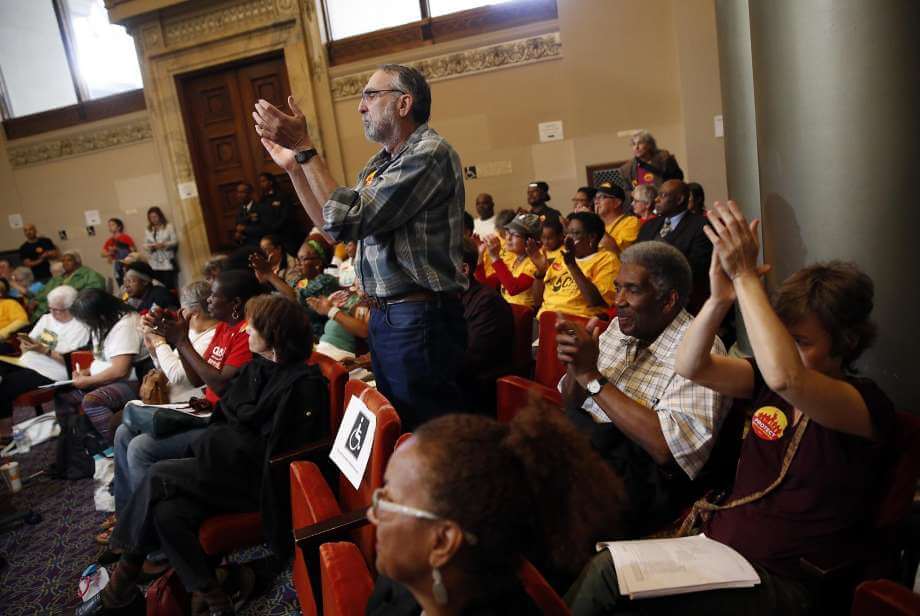Oakland City Council kicks the can on tenant buyout regulations, but the elephant is still in the room
[apss_share]

Oakland landlords can breathe a temporary sigh of relief after agenda item #7.7 on the tenant buyout ordinance has been shelved for the time being and has yet to be rescheduled. On March 6, the city was scheduled to vote on onerous new rules that meddle with an owner’s prerogative to negotiate a voluntary buyout agreement.
For now, property owners can find some solace that they can exercise their protected right of speech and approach tenants with the offer of cash in exchange for the tenant vacating the rental unit, but the fact that we are having this discussion is cause for alarm. It is rather rare for a governmental entity to tinker with the rights of consenting parties to enter into a voluntary agreement, but now is one of those “only in the Bay Area” moments.
RELATED: See our article on Medium that discusses tenant buyout agreements in greater detail
San Francisco, of course, has been one of the biggest laboratories in rent control, and it’s been with some concern that we have witnessed Oakland’s rent stabilization policies slog towards a mirror of its neighbor's heavy-handed restrictions on rent-control units. As we noted in an earlier post, Oakland renters that occupy dwellings subject to Measure EE may now be entitled to re-location payments when an owner attempts to recover possession of a tenant-occupied unit for use as their primary place of residence, or a relative’s use where the landlord already lives in another unit in the building.

This is the second occurrence in recent memory of tenant buyout agreements percolating to our radar. We reported in February that the Ninth Circuit has upheld San Francisco’s ordinance that puts tenant buyouts in check with added disclosure requirements and prohibiting condo conversions in certain circumstances.
There is some debate over what impact unfettered tenant buyouts would have. While some tenant advocates would claim that buyouts only accelerate displacement, we think instead that an infusion of new units from the highly regulated rent-controlled housing pool to the free-market housing inventory would increase liquidity, thereby alleviating pressure and reducing unscrupulous transactions off the market. In an oldie but goody, read this 2016 Newsweek article which takes on the topic of tenant buyouts.
Whatever the macroeconomic impact of buyouts have on rent is, one thing we can say with a greater degree of certainty is that a landlord is well-advised to consult with an attorney before engaging tenants in a buyout proposal.
Oftentimes, we don’t see eye-to-eye with tenant attorneys, but we agree with one tenant rights attorney quoted in the Newsweek article. “Buyouts are extremely complex," he says, and relates them to snowflakes. “They are all individual.” Making it imperative for the landlord attorneys at Bornstein Law to review your individual circumstances and oversee a proper, enforceable agreement.
Continue the conversation by following us on Facebook.
[efb_likebox fanpage_url="bornsteinlaw" box_width="250" box_height="500" locale="en_US" responsive="1" show_faces="1" show_stream="1" hide_cover="1" small_header="0" hide_cta="0" animate_effect="fadeIn" ]
![]()

Daniel is the founding attorney of Bornstein Law, the San Francisco Bay Area's foremost authority on managing landlord-tenant relationships, property management issues, and complex real estate litigation. Having protected the rights of property owners for over 23 years, he is also renowned for his educational workshops, his speaking engagements with numerous organizations, and as an expert witness. Contact his office today.

